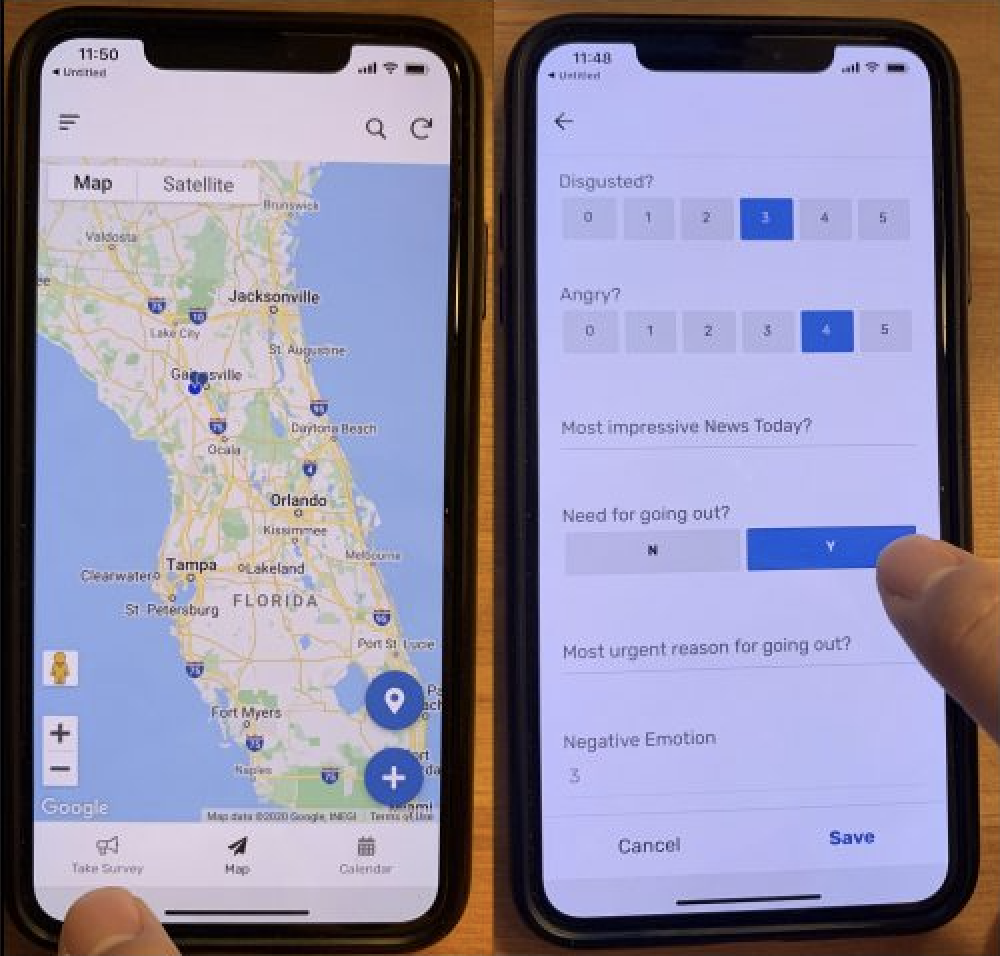The unprecedented coronavirus pandemic forced the world to shut down for months. Homes turned into classrooms, work places and restaurants. Now, as America continues to reopen, people are adjusting to a new normal when entering public places and interacting with others.

Eric Jing Du, Ph.D., an associate professor in the Engineering School of Sustainable Infrastructure & Environment (ESSIE) within the University of Florida Herbert Wertheim College of Engineering, plans to examine and predict changes to people’s mobility behavior with a Rapid Response Research (RAPID) Award from the National Science Foundation. Dr. Du is collaborating with Ryan Qi Wang, Ph.D., at Northeastern University. The ultimate goal is to enable improved citizens’ preparation and public agencies’ responses to future public health crises.
“A person’s daily trip decisions can be affected by a variety of motivational, decisional and sentimental factors, such as the sense of urgency for going out, concerns about the coronavirus spread, news coverage and social influence,” Dr. Du said.
Dr. Du worked with his students–Tianyu Zhou, Qi Zhu and Paul Wei–to develop a smartphone mobile app to send daily high-frequency surveys to users and obtain location data through the built-in GPS tracker. He plans to cross-reference the app’s results with the individual’s geolocation data captured from Twitter to gather information.
Based on the results of the attitudinal data with people’s daily GPS results, Dr. Du will build machine learning models. The mathematical model will be used to display a trajectory of the public’s mobility pattern changes during the pandemic as changing conditions influence attitudes correlated to travel decisions.

“This is important because the general public can be better informed of safer travel behaviors, such as avoiding certain areas at certain times in the day and the use of personal protective equipment when using public transport. Public agencies can use our data and model to help predict the development of the pandemic and investigate strategies to encourage safer behaviors related to daily travels,” Dr. Du said.
The project is now at the stage of gathering data from roughly 500 individuals over a 3-month period. Participants consented to releasing their geolocation information for research purposes. Participation in this research is voluntary and adheres to UF Institutional Review Board compliance guidelines. Support from the National Science Foundation extends to April 2021.
This story originally appeared on UF ESSIE.
Check out more stories about UF research on COVID-19.

